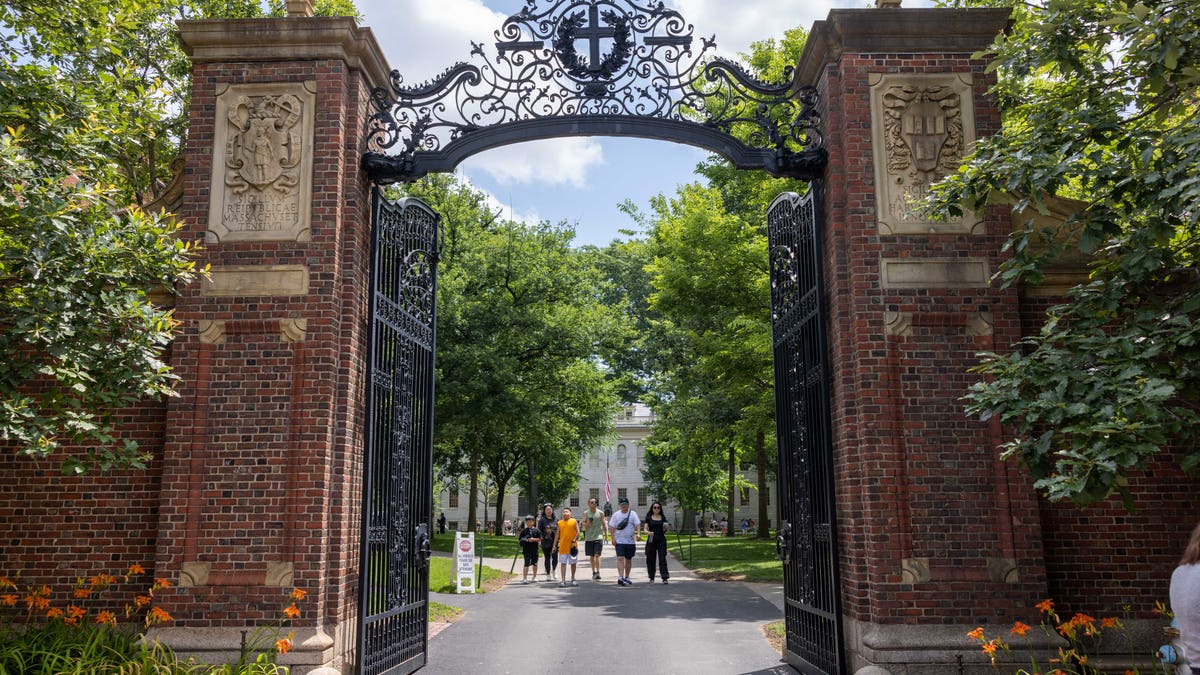Striking down affirmative action is John Roberts' 'greatest opinion': John Yoo
UC Berkeley Law professor John Yoo reacts to Supreme Court decision to ban race-based affirmative action in college admissions.
With the U.S. Supreme Court striking down race preferences in university admissions in the much-anticipated Harvard-University of North Carolina case, the pressure is now on K-12 schools to produce college-ready students, especially those from underrepresented minority groups.
In the Harvard-UNC case, the court said that both institutions discriminated against Asian American applicants, who had the highest objective academic ratings, by using subjective factors, such as personality traits like kindness and likeability, to limit the number of Asian Americans accepted in favor of admitting students of other races.
The court said the colleges' use of subjective factors violated the constitutional right of Asian American applicants to equal protection of the law under the 14th Amendment.

People walk through the gate on Harvard Yard at the university's campus on June 29, 2023, in Cambridge, Massachusetts. (Scott Eisen/Getty Images)
According to the court, "Eliminating racial discrimination means eliminating all of it." Thus, colleges cannot "employ race in a negative manner" nor "involve race in stereotyping."
SUPREME COURT STRUCK DOWN AFFIRMATIVE ACTION, BUT THAT WON'T STOP HARVARD
While universities scramble to change their admissions systems in accordance with the new ruling, K-12 public schools are now under the gun to improve the performance of minority students.
The systemic problem is not systemic racism, but the failure of the public schools to prepare minority students for higher education.
On the National Assessment of Educational Progress exams, the achievement levels of African American and Hispanic public school students are heartbreakingly low.
On the 2022 fourth-grade math exam, 15% of African American test-takers scored at the proficient level. On the eighth-grade math exam, only 9% scored at the proficient mark.
For Hispanics, 22% scored at the proficient level on the fourth-grade math exam, while just 14% hit proficiency on the eighth-grade exam.
On the 2022 reading exam, among African Americans, 17% of fourth graders and 16% of eighth graders scored at the proficient level.
THIS ASIAN AMERICAN SUCCESS STORY APPLAUDS SUPREME COURT AFFIRMATIVE ACTION RULING
Among Hispanics, 21% of both fourth and eighth graders managed to hit proficiency.
These scores indicate that huge majorities of these minority students are failing to achieve proficiency in the basic subjects, which means that they are not being adequately prepared to compete for college admissions.
Higher education leaders realize that this is the case.
In 2020, the University of California's Academic Senate issued a report that said 31% of UC freshmen enrollees in 2017 were from underrepresented minority groups, while 61% of California high school graduates that year were from those groups.
In a crucial acknowledgment, the report said this disparity was explained by factors "that precede admission."
Specifically, the report found that the most significant factor preventing these students from entering the UC was their failure to complete demanding and required college preparatory courses.
The office of then-UC President Janet Napolitano, a former Democrat governor of Arizona, acknowledged that "the biggest contributor to underrepresentation at UC is that students do not fulfill the A-G [college prep] requirements for admissions."
CLICK HERE TO GET THE OPINION NEWSLETTER
Further, the Academic Senate report found that "lower high school graduation rates for [underrepresented minorities]" was also a key factor.
Minority parents know that much of public education has failed their children.
During the COVID pandemic, one African American mom in Detroit told The New Yorker: "Parents are not deciding to take their children out [of public schools] because of COVID. Parents are doing [homeschooling] because education has failed children in this city forever."
CLICK HERE TO GET THE FOX NEWS APP
Thomas Sowell, the renowned Black economist, feared that Black children "will not have a good chance to rise as people of my generation did, simply because they will not receive as solid an education, in an era when such an education is even more important."
The Supreme Court's Harvard-UNC ruling should be a wake-up call to the nation's public schools to focus on proven scientific research-based methods of improving student achievement in the core subjects so that they can prepare all students for higher education and a successful life.

























